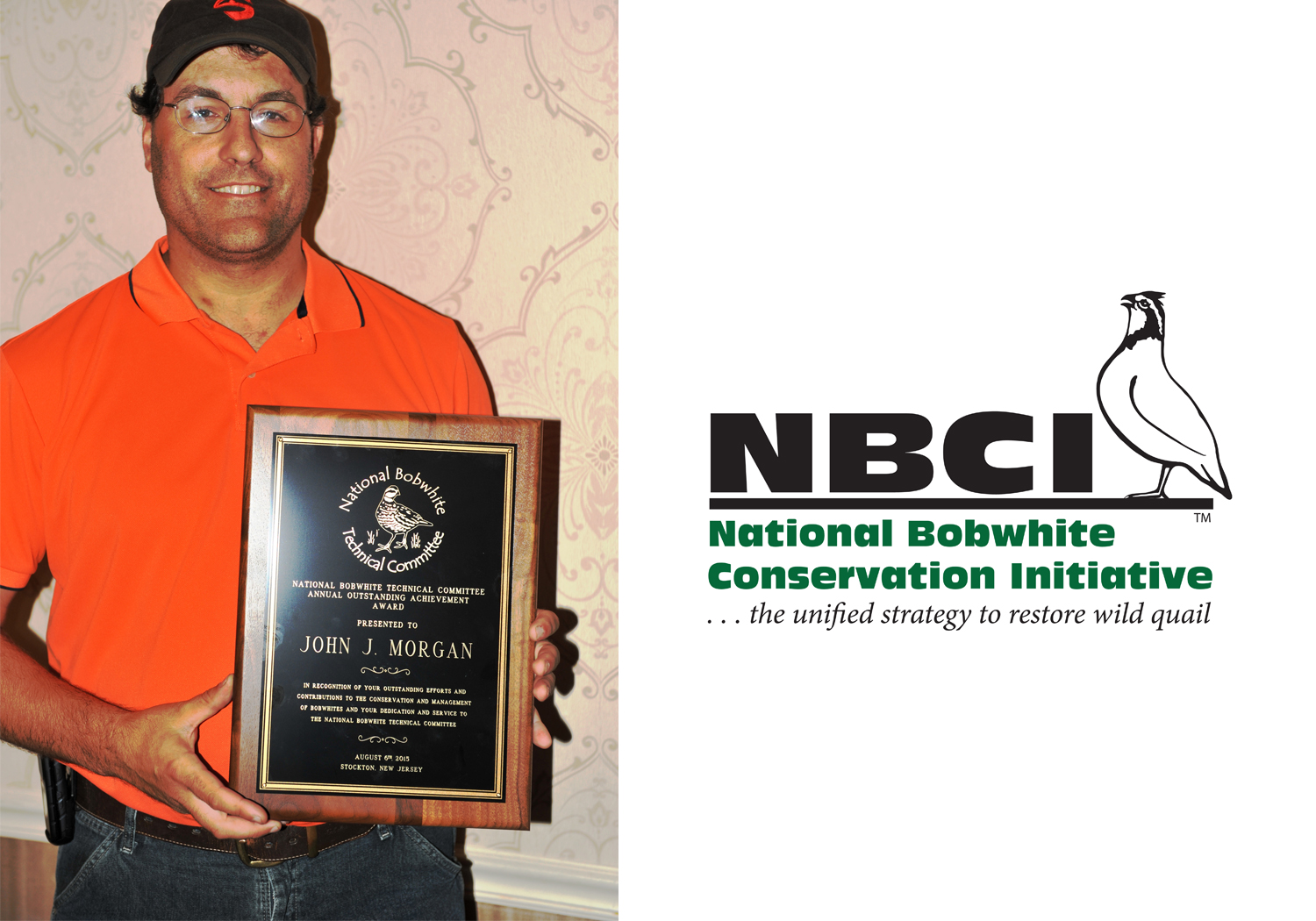
John Morgan, a recognized name in bobwhite restoration and a leader in the efforts of the 25-state National Bobwhite Conservation Initiative (NBCI), will become the new director of the University of Tennessee-based NBCI effective Oct. 1. He replaces Don McKenzie, who retired last October.
“I’ve known John for a long time and have always been impressed with his ‘get things done’ attitude, strong work ethic and ability to bring people together,” said Paul Johansen, chair of the NBCI Management Board and chief of the Wildlife Resources Section of the West Virginia Division of Natural Resources. “John has an almost contagious energy and is absolutely the right person at the right time needed to solidify the NBCI foundation and grow it in new directions.”
“I’m so excited to have John Morgan at the helm of the NBCI,” said Robert Perez of Texas, recent past chair of the National Bobwhite Technical Committee, “especially during these transitional and uncertain times. John is a proven leader in the conservation community with a strong sense of vision and purpose. I can’t think of anyone more qualified to take the NBCI mission to the next level. John has the skills needed to strengthen the initiative, bring new partners to the table and blaze new trails,” Perez said.
Morgan, from Lawrenceburg, Kentucky, spent the last 17 years as the Kentucky Department of Fish and Wildlife Resources’ small game program coordinator and was, in addition, an adjunct assistant professor for UT for the past 11 of those years. Prior to moving to Kentucky, Morgan worked for the Florida Fish and Wildlife Conservation Commission and Penn State Cooperative Wetlands Center.
His visibility in the bobwhite world came about as the result of his two most recent roles in Kentucky and his volunteer leadership in the national restoration effort. As small game coordinator he led the development and implementation for Kentucky’s high priority 10-year bobwhite restoration plan, as well as a wide variety of partnerships with private conservation groups and government entities for the plan’s implementation.
As a UT adjunct he built a partnership to conduct the Peabody Research Project, one of the largest bobwhite telemetry projects in the history of the Mid-South, capturing over 2,000 bobwhites during a five-year period. Morgan also was instrumental in launching the Bluegrass Army Depot Patch Burn Grazing Project, the first experimental design of native warm-season grass pastures in the East under a patch-burn framework, including grassland bird and cattle weight gain surveys. Subsequently, he led the development of the Grasslands Conservation Initiative, a partnership built around another groundbreaking quail research project, one designed to reveal the relationship of cattle and bobwhites in the East, and a proactive collaboration with adjacent landowners to advance working lands conservation.
During his Kentucky tenure Morgan served in multiple roles on the National Bobwhite Technical Committee, the technical advisory body to NBCI, including chair, secretary/treasurer, and annual meeting co-chair. Morgan also served as chair of NBCI’s Ad Hoc Monitoring Committee, which developed the monitoring protocols for NBCI’s science-based bobwhite focal area program. He is also a founding member and secretary of the Kentucky Prescribed Fire Council, a member of the East Gulf Coast Joint Venture management board, member of the Central Hardwoods Joint Venture, advisor to the Kentucky Quail Specialty License Plate Board, a member of AFWA’s Resident Gamebird Working Group, the Kentucky Chapter of the Wildlife Society and the USDA’s NRCS State Technical Committee.
“So many talented, knowledgeable and hardworking people have brought wild bobwhite restoration and NBCI to where it is today,” Morgan said, “so it’s an immense honor to help lead what has become one of the nation’s premiere grassland conservation initiatives. NBCI is poised to capitalize on the elevated focus on conserving and restoring America’s imperiled native grasslands, northern bobwhite, and a host of other birds, pollinators and other wildlife species will benefit.”
Morgan has a Bachelors in Wildlife and Fisheries Science from The Pennsylvania State University, a Masters in Wildlife Ecology and Management from the University of Georgia and is a graduate of the Certified Public Program Manager curriculum at Kentucky State University.